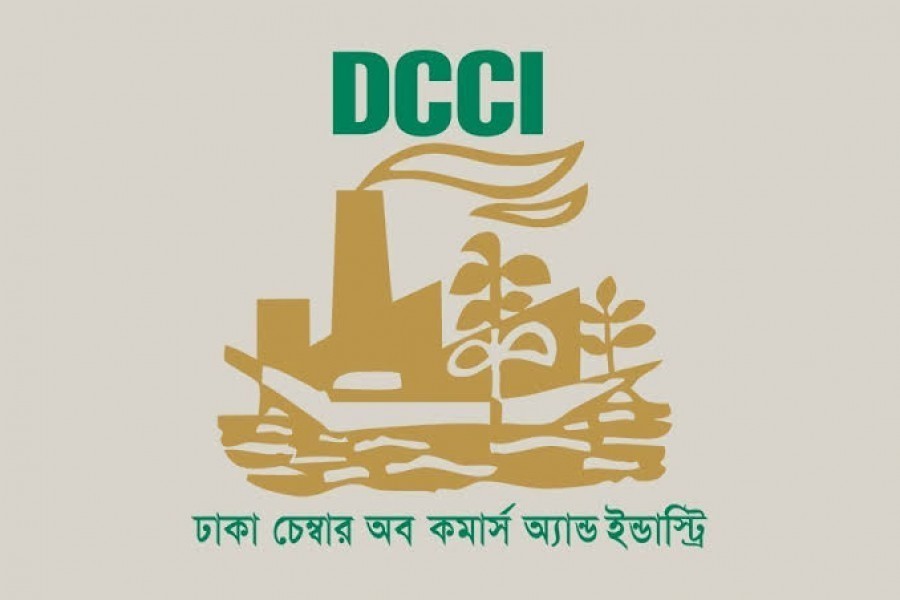Development of adequate, diverse logistics infrastructure including ports, multimodal sub-regional transport connectivity is important to improve our trade competitiveness and secure low-cost trade potentials with South and South East Asian markets, experts and stakeholders said at a webinar.
Dhaka Chamber of Commerce & Industry (DCCI) on Tuesday arranged the webinar. Dr Rubana Huq, President BGMEA, joined the webinar as the guest of honour while DCCI President Shams Mahmud moderated the webinar.
Shams Mahmud said logistics facilitation enhances countries' trade competitiveness through making on-time trading of goods and services with lower transaction costs. Efficient logistics enhances countries' competitive edge substantially reducing cost of doing business.
The efficient logistics management has a stronger effect on trade promotion than tariff cuts. Despite remarkable economic progress, Bangladesh lags behind competing countries in terms of logistics infrastructure competitiveness, he insists.
During COVID-19 crisis Bangladesh experienced 17 per cent export fall in 2020 while global trade estimated 28 per cent fall.
According to the Logistics Performance Index 2018, Bangladesh ranks 100 and 105th in the Global Competitiveness Index. Logistics costs in Bangladesh are high in most sectors while Road transport costs in Bangladesh are higher than many developing and developed countries, the DCCI president points out,
Development of adequate, diverse logistics infrastructure including ports, multimodal sub-regional transport connectivity is important to improve our trade competitiveness and secure low-cost trade potentials with South and South East Asian markets, he says.
He also recommended an automated customs clearance process, integrated port infrastructure with larger storage facility, handling facility, terminal. He also urged for quicker implementation of WTO trade facilitation agreements.
In her speech, Dr Rubana Huq said we need to have an internal index of competitiveness and which needs to be monitored regularly. We need to ensure best utilization of full capacity of ports, she said. In terms of improvement in logistics performance, inward FDI and intra-regional trade are also important
Dr Selim Raihan, Executive Director, SANEM, said Bangladesh’s progress in Logistic Performance Index (LPI) between 2007 and 2018 is not up to the expected level whereas China, Vietnam, Thailand gained tremendous growth. Lower position in LPI may hurt our competitiveness, he added. Besides, to increase export, improvement in LPI is crucial.
Mr Raihan also suggested addressing the challenges of tariff and para-tariff issues including customs modernization.
Dr Zaidi Sattar, Chairman, Policy Research Institute (PRI), urged for customs modernisation.
He said custom administration should play a role of trade facilitator rather than being tax collector. If we can develop port infrastructure, custom infrastructure, our position in LPI will improve resulting in trade cost cuts. By the improvement of LPI, the non-RMG sector will get its real benefits. Moreover, incentives should be given to export and domestic sales.
Dr M Masrur Reaz, Chairman, Policy Exchange said Bangladesh is now doing better in several trade facilitation services. But logistics and infrastructure are two very important sides that need to be improved a lot, he said.
He also urged for a professional bonded warehousing facility especially in the SEZ regions. There are third party logistic service providers in different countries, he added. But what we need is a logistic specific policy and master plan including land zoning.
Mahbubul Alam, President, Chittagong Chamber of Commerce & Industry stressed for widening Dhaka-Chittagong 4-lane into 8-lane. There needs to have a railway cargo connectivity with the Chittagong Port, he further said. Moreover, bay terminal and cross border link up need to be developed. He further demanded for a truck terminal in Chittagong to ease city traffic.
Md Zafar Alam, Member, Chittagong Port Authority, said that the Chittagong Port now can handle 3 million containers whereas it was 2 million in 2015. He said the government will build a bay terminal outside the city where 18-meter draft vessels will be able to come.
Mohammad Akbar Hossain, First Secretary (Customs & VAT), NBR said Bangladesh Customs started its automation since 1994 but still there are bottlenecks and we have to eliminate these barriers.
He underscored the importance of coordinated border management. He said the port-connecting road in Chittagong city needs to be completed soon.
Barrister Sameer Sattar, Advocate, Supreme Court of Bangladesh said congestion and delay in ports need to be solved. Moreover, in the goods transportation system, roads and railways are underutilized. He urged for pragmatic governance, better coordination among the concerned ministries to improve logistics performance.
Abul Kasem Khan, Chairperson, BUILD said logistics is a vast issue and there is no single authority to look after it. So, he suggested formulating a comprehensive logistics policy under a single authority or ministry to supervise.
Mr Khan also urged to declare logistics a thrust sector. There can be a separate zone for logistics service in the SEZs, he suggested. He cited an example of Vietnam that there is a Global Distribution Centre there as a common bonded warehousing. He also suggested including a common bonded warehousing system in the policy.
DCCI Senior Vice President NKA Mobin, gave the concluding remarks.


